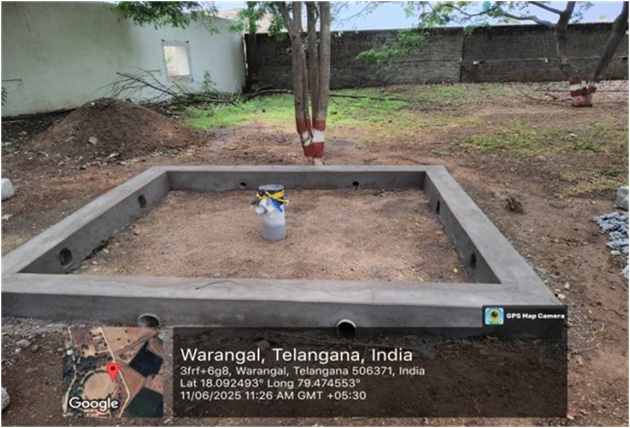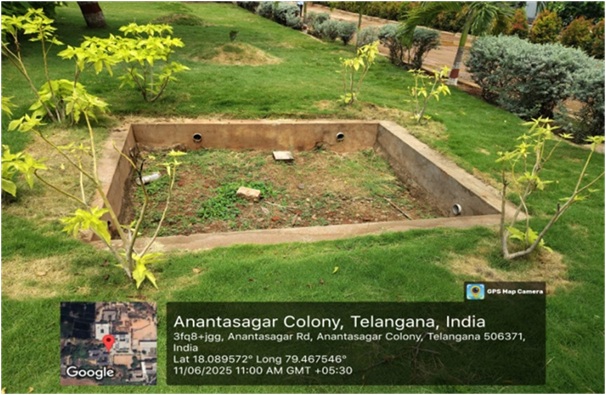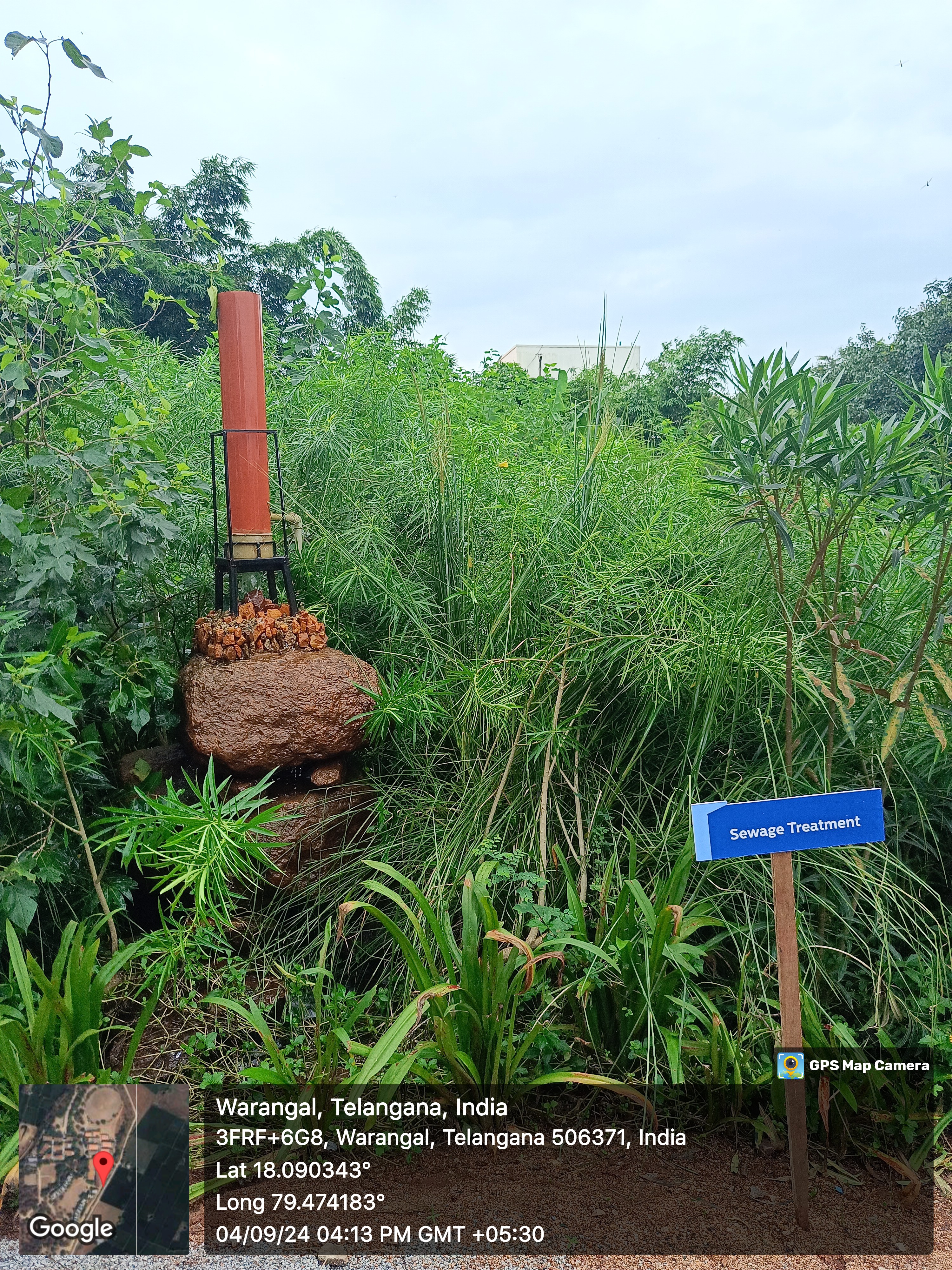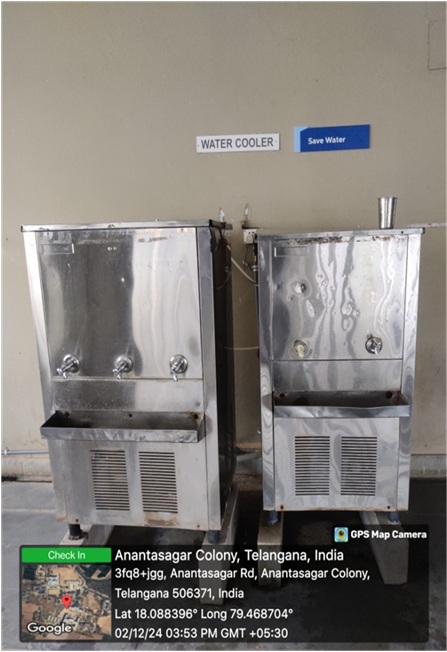SR University (SRU) is strongly committed to Sustainable Development Goal 6: Clean Water and Sanitation through responsible water governance, advanced treatment technologies, and a campus-wide culture of conservation. The University integrates scientific planning, regulatory compliance, community engagement, and innovative infrastructure to ensure that water is used efficiently, recycled effectively, and safeguarded for future generations. SRU’s approach encompasses continuous monitoring, low-impact design, pollution prevention, and collaborative initiatives that protect water resources both on campus and in surrounding regions.
Comprehensive Water Usage: SR University follows a formal Water Usage and Conservation Policy that mandates responsible usage, minimizes wastage, prevents any polluted water from entering the natural environment, and promotes reuse and recycling. This policy guides water management across academic, residential, recreational, and laboratory spaces.
Measurement and Tracking: SRU maintains a robust water measurement and auditing mechanism to track:
Metering systems and automated monitoring processes ensure accurate reporting, which supports long-term sustainability planning and compliance with environmental standards.
Prevention of Water Pollution: SRU ensures that no untreated or contaminated water ever enters natural water bodies. The campus enforces:
Environmental audits confirm that water pollution is completely avoided across the campus.
Eco-Friendly Building Standards: The University implements water-efficient building guidelines that include:
These standards ensure water efficiency is embedded into the physical fabric of the campus.
Reedbed-Based Natural Treatment System: SRU has implemented a reedbed treatment facility, which uses natural wetland vegetation to treat wastewater. This nature-based solution:
This system is used as a living laboratory for environmental science and engineering students.
Reuse of Treated Water: SRU implements large-scale water recycling, with nearly 20% of total water demand met through treated wastewater. The treated water is used for:
This significantly reduces dependence on freshwater sources and supports sustainable operations.
Rainwater Harvesting Systems: All academic blocks, hostels, and administrative buildings include
The entire campus topography is contoured so that surface runoff flows into recharge structures, restoring groundwater levels and sustaining open wells.
Well and Borewell Recharge Mechanisms: SR University uses scientific methods to
Special attention is given to recharging campus wells to ensure long-term water security.
Water Bunds and Surface Runoff Management: SRU has constructed
These structures help maintain ecological balance and strengthen natural hydrology.
Water Tolerant and Native Plantation: The campus is landscaped with drought-tolerant species, including around 10,000 neem trees, native shrubs, and low-water-demand plants. This approach reduces irrigation needs while improving green cover and air quality.
Storage and Distribution Infrastructure: To ensure reliable water supply, SRU maintains
This ensures uninterrupted access to clean water throughout the campus.




Free and Safe Drinking Water: SR University provides free purified drinking water to all students, staff, faculty, and visitors through:
Regular testing ensures the highest standards of drinking water quality.
Water Conservation Awareness and Student Engagement: The University actively involves students in awareness initiatives. The NSS, sustainability clubs, and other student groups conduct:
These activities build a culture of environmental responsibility.
Signage: To encourage responsible usage, SRU has installed:
These cues reinforce everyday conservation habits.
Outreach and Capacity Building: SR University’s commitment to water sustainability extends beyond campus. The University conducts programs in rural and semi-urban communities related to:
Student volunteers and faculty members regularly visit schools and villages to promote sustainable practices.
Research and Innovation in Water Management: Faculty and students engage in research on:
The campus itself serves as a living laboratory for hands-on learning.
Collaborations and MoUs: SR University collaborates with
These partnerships support large-scale awareness programs, technical solutions, and community water security projects.
SR University’s approach to SDG 6: Clean Water and Sanitation is comprehensive, innovative, and impact-driven. Through well-defined policies, precise monitoring, advanced treatment facilities, natural reedbed systems, rainwater harvesting structures, and widespread awareness programs, SRU ensures sustainable and responsible water management. By integrating sustainable technologies, eco-friendly buildings, community-oriented initiatives, and research-driven practices, the University not only safeguards water resources for its campus but also contributes meaningfully to regional environmental sustainability. SRU remains firmly committed to shaping a water-secure future through education, innovation, and responsible stewardship.